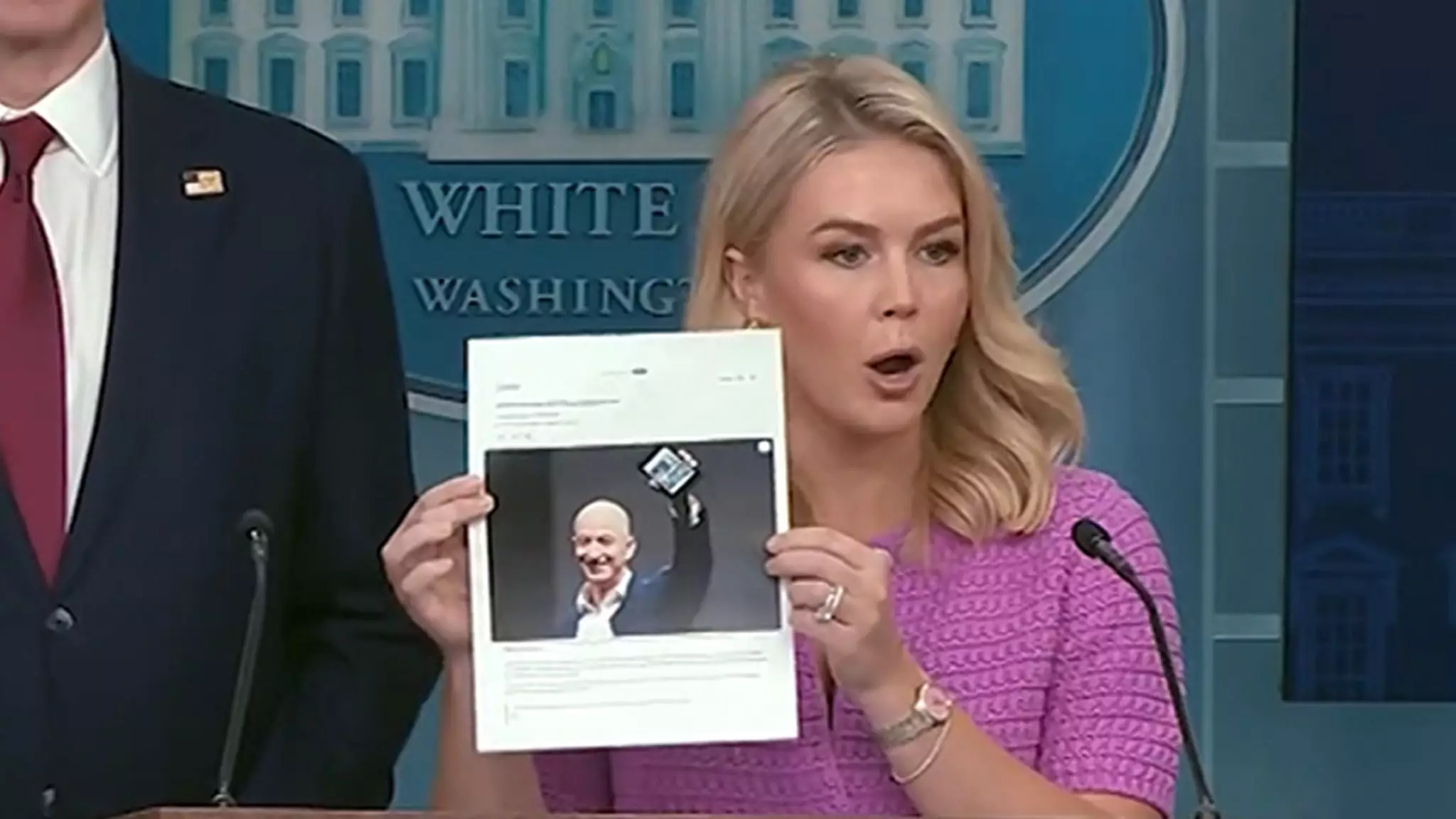In a striking move reminiscent of a power play, Amazon’s proposed feature regarding tariffs has ignited a firestorm of political contention. White House Press Secretary Karoline Leavitt characterized the initiative as a “hostile and political act” during a recent press briefing. This reaction encapsulates the broader implications of corporate actions intersecting with governmental policies and public perception. The feature—intended to transparently show consumers how President Trump’s tariffs have affected prices—has provoked accusations of partisanship, questioning the motives behind its formation and implementation.
Demanding Accountability
Leavitt’s pointed question regarding Amazon’s apparent failure to similarly spotlight inflation during President Biden’s administration raises valid concerns about selective corporate engagement with political narratives. It highlights the need for companies to be held accountable for the socio-political landscape they operate within. Should corporations like Amazon leverage their platforms to educate consumers about the economic factors influencing pricing? It seems necessary, but one must wonder if these disclosures are made in good faith or as a calculated move to disrupt the political status quo.
A Defense from Amazon
In response to the backlash, Amazon issued a clarification, asserting that the pricing feature was never meant for the main Amazon platform. Their defense underscores an essential aspect of modern corporate America: the balance between operational transparency and public relations. By distancing themselves from the initiative, Amazon appears to dodge a potential public relations minefield. Nonetheless, the initial proposal raises critical questions—how much influence should major corporations wield over public discourse, and how transparent should they be?
Implications of European Cooperation
During the press briefing, Leavitt also referenced a partnership between Amazon and a foreign entity associated with Chinese propaganda. This connection, although outdated, sheds light on the complexities of global business relationships in an era where national security and economic interests are deeply intertwined. America’s ongoing battle with China over trade and technology highlights a critical need for scrutiny of corporate alliances and their implications for domestic policies. Transparency here is not merely a virtue; it’s an imperative for consumer trust and national integrity.
Economic Strategy and National Loyalty
Leavitt’s call for Americans to support domestic products resonates as a fundamental component of strengthening the nation’s economy. With looming fears over supply chain vulnerabilities exacerbated by global partnerships, the push for self-sufficiency cannot be overstated. However, it begs the question of how effectively governments and corporations can synergize in their efforts to reinforce national economic resilience in a globalized environment.
Trickle-Down Effects on Consumer Sentiment
As this controversy unfolds, consumer reactions may function as a barometer for the public’s sentiment toward both Amazon and the broader political landscape. Will these pricing adjustments spur consumer awareness about the intricate relationship between their purchasing behaviors and political policies? With heightened awareness of tariffs, inflation, and global trade dynamics, consumers find themselves at an intersection of choice and consequence, emphasizing the importance of responsible corporate behavior.

